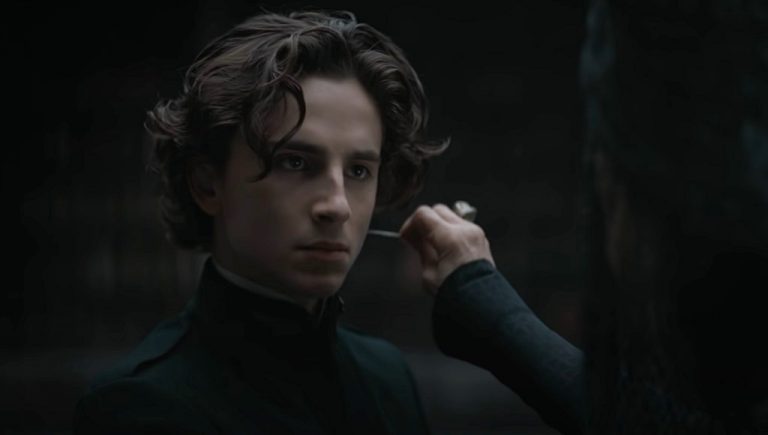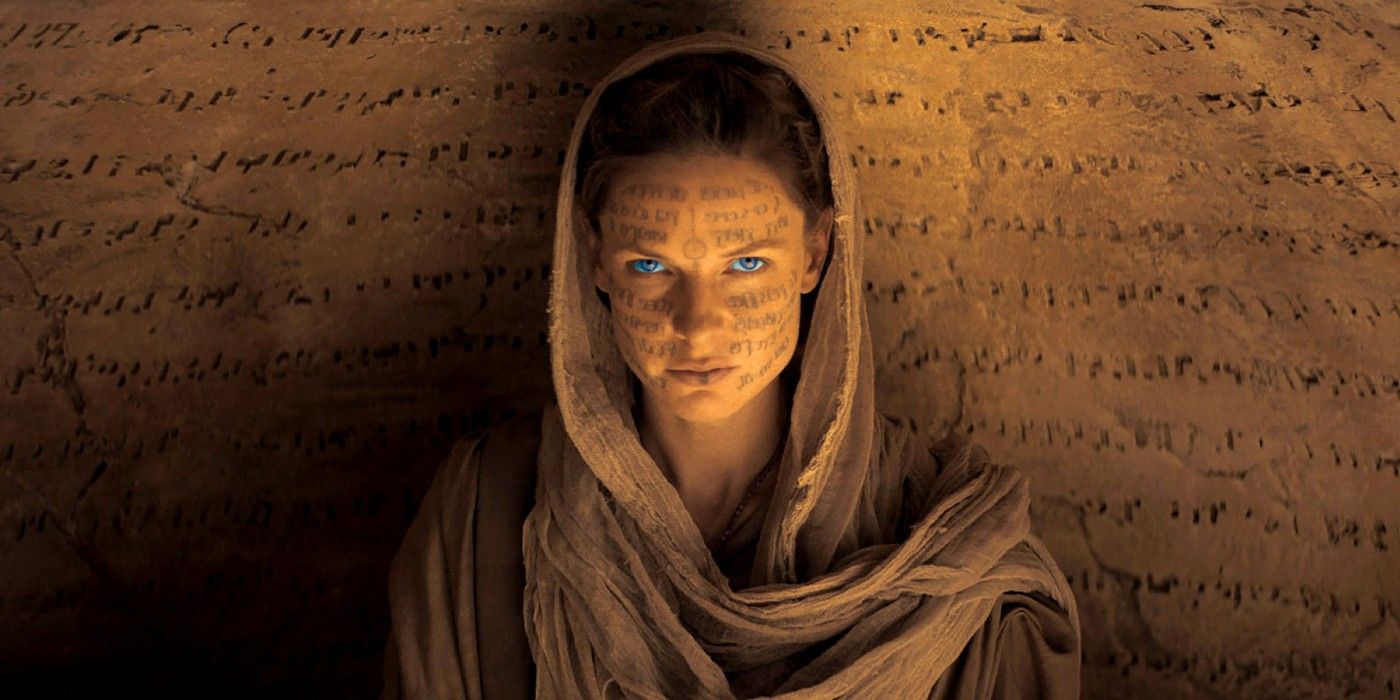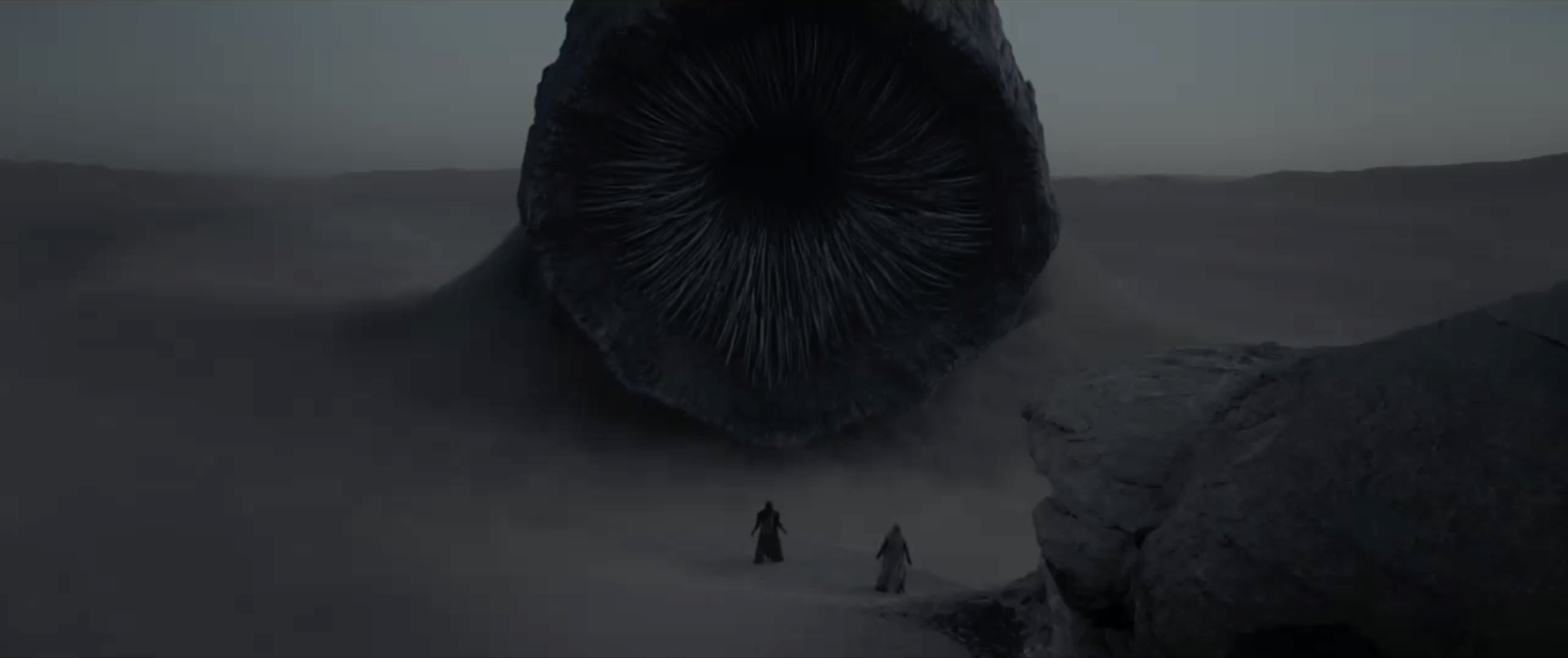
The novel Dune, written by Frank Herbert in 1965, is a science-fiction that takes place in a distant future, within a feudal interstellar society where various noble houses control planetary fiefs. Many have defined it as an arduous, if not impossible, book to adapt for the screen. Nevertheless, David Lynch tried to embrace the challenge in 1984, and now Denis Villeneuve has embarked upon that same strenuous quest.
The acclaimed Canadian film director gathered an exquisite cast for this enterprise, that includes the likes of Timothée Chalamet, Rebecca Ferguson, Oscar Isaac, Josh Brolin, Stellan Skarsgård, Dave Bautista, Zendaya, Chen Chang, Charlotte Rampling, Jason Momoa, Javier Bardem.
This is the first chapter of two films, since Villeneuve agreed to take on the task for Warner Bros. and Legendary, under the condition that he could split the novel into two motion pictures. The second Dune film is currently being written, but there is no official green light for the project. It all depends on the financial success at the box office of the current Dune Part One.

The entire movie rests entirely on the shoulders of a prestigious cast and magnificent special effects, that bestow a spectacular scenographic painting. However, this stupendous snapshot, of a mesmerising world, does not evolve into a compelling narrative of moving pictures. Thus, Dune comes across as inanimate, without a purpose or soul.
The colossal attempts to follow in the footsteps of another complex saga that was adapted for the silver screen, The Lord of the Rings: just like Peter Jackson did with Tolkien, Villeneuve chooses to present the story to us and then postpone the solution to the upcoming chapter. Thus, the entire two hours and a half of Dune Part One are dedicated to a lengthy and vacuous presentation of the characters.
Paul Atreides (Timothée Chalamet), is a gifted young man destined for greatness, but his future is still a riddle to him. He is the son of a noble family, who tries to avenge his father’s death as he grapples with the task of protecting and saving a planet that contains an important spice. Paul must travel to the most dangerous planet in the universe to ensure the future of his family and his people. As in all epic stories, the protagonist and his people encounter a malign force, and only those who can conquer their own fear will thrive.

Just as Blade Runner 2049 was a nonessential operation, that tried to revamp a milestone in the history of film, Villeneuve’s Dune — despite the grandiosity of its cinematography and visual artistry that must be enjoyed in cinemas — leaves a void in feeling and action. It can be perceived as a cinematic essay that extensively analyses the religious traditions and political systems within the story, almost as if it were a never ending glossary. The audience is consequently sucked into a black hole of notions, but the film ultimately fails to make the characters interact effectively. The entire first chapter of the new Dune comes across as a premise that could have been condensed and that could have paved the way for an engrossing drama, portraying the actual hero’s journey.
Villeneuve fails to right Lynch’s wrongs in transforming the arduous novel into a worthy filmic experience. The film premiered at the 78th Venice International Film Festival and will also be presented at the 59th New York Film Festival.
Final Grade: B/C

